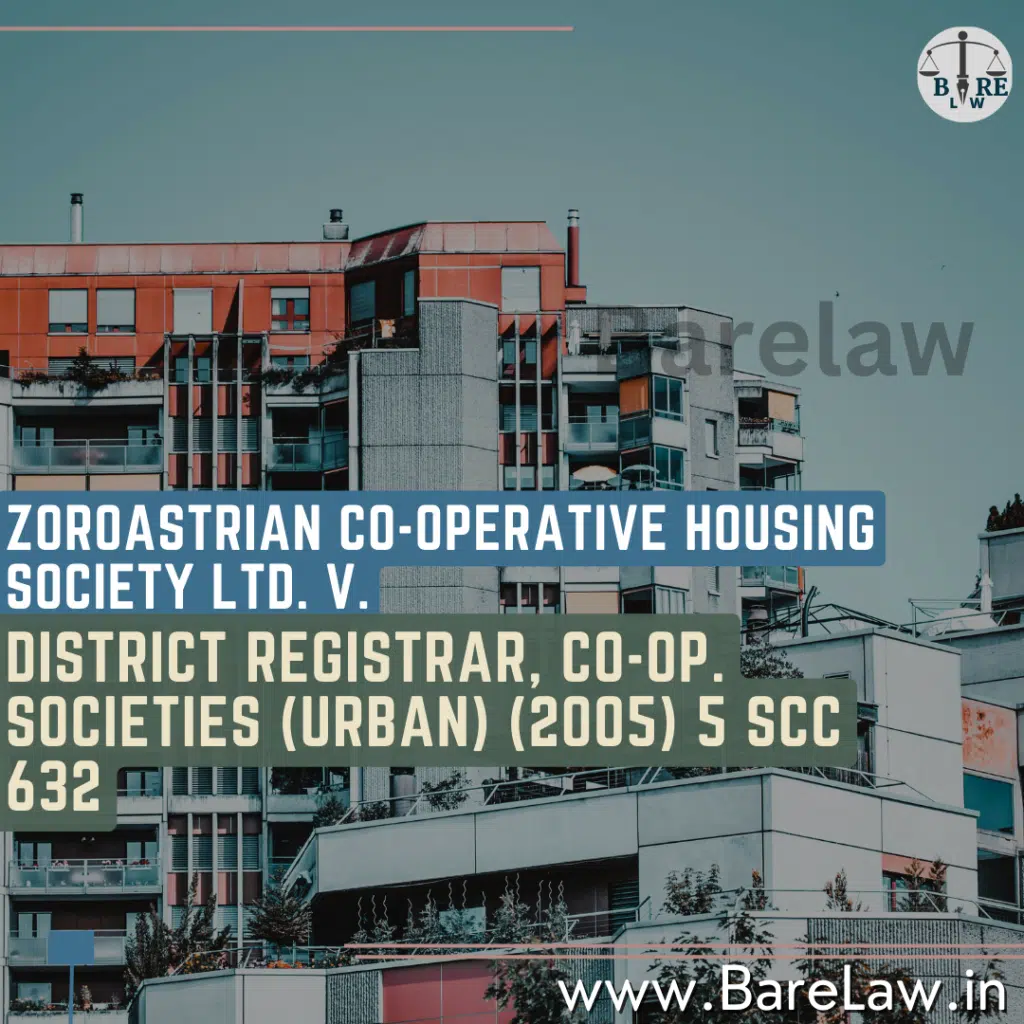
Table of Contents
Zoroastrian Co-operative Housing Society Ltd. v. District Registrar, Co-op. Societies (Urban) (2005) 5 SCC 632 | BareLaw
The Zoroastrian Co-operative Housing Society Ltd. v. District Registrar, Co-op. Societies (Urban) (2005) 5 SCC 632 case is a matter of enquiry into whether a co-operative housing society can restrict its membership to the Parsi Community by way of a bye-law. The essay below examines the background, legal issues, decision and impact on public policy and cooperative societies.
Introduction
Zoroastrian Co-operative Housing Society Ltd. v. District Registrar, Co-op. Societies (Urban) (2005) 5 SCC 632 is an important case in the terrain of Public Policy, Community Rights and Legal Restrictions in Cooperatives Housing Societies.Rich in details this article will explore some intricacies that are inherent in this landmark verdict.
Background and Facts
Incorporated in 1926 under Bombay Cooperative Societies Act, 1925; Zoroastrian Cooperative Housing Society Limited was created as per its memorandum of association with limited liability status[1]. Under section 23(3), the bye-laws of the society restricted membership to only Parsis [2]. This provision got into trouble when Gujarat State reorganization took place and it was governed by Gujarat Cooperative Societies Act [3].
Legal Issues
The main question here was about the validity of bye-law limiting membership to Parsis [4]. Earlier on Gujarat High Court held that this bye-law would be invalid because co operative society has to comply with all legal provisions including statutory provisions regarding non-parsis also who may come from minority community or other than them albeit it pertained to very few people having houses for their dwelling purposes[8]. However Supreme Court overturned this judgement stating that public policy is against Section 71(4)(a). There being no prohibition against such restrictions expressed itself inside the Act could not be said to be against public policy.
Judicial Observations and Decision
The Supreme Court has held that public policy in this case must be seen within the specific statutory framework. Therefore, the bye-laws would not run counter to public policy because there is no provision prohibiting such restrictions. The court also placed importance on caste or community based common habits and uses constituting a bond among people living together within India [9].
Implications of the Judgment
This case brings to light a deeper understanding about public policy in cooperative societies. It thus shows how communal bonds may be balanced with legal provisions governing cooperative societies. What makes it significant is that, it establishes a precedent for interpreting scope of bye- laws in cooperative housing societies vis-a-vis their compatibility with public policy.
Conclusion
The Zoroastrian Co-operative Housing Society Ltd. is one of the most important cases relating to co-operative housing law as it explains how membership restrictions are viewed under public policy and legal rights. It highlights how courts have approached community rights versus legal statutes in cooperatives.



